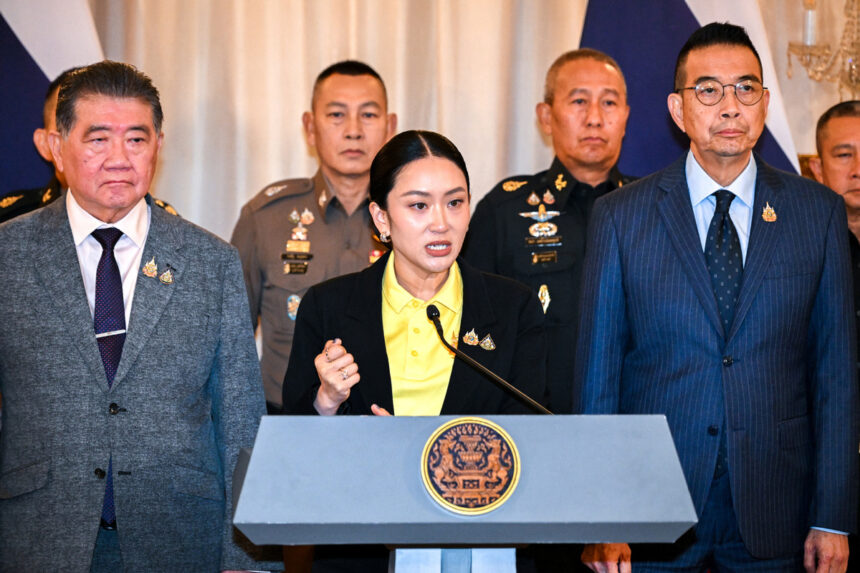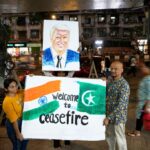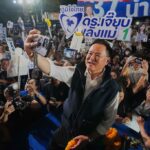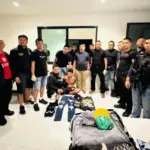BANGKOK — Tensions over the Thailand-Cambodia border have erupted into a political storm in Bangkok, putting Prime Minister Paetongtarn Shinawatra’s government under intense pressure. The situation escalated after a 17-minute phone conversation between Paetongtarn and former Cambodian Prime Minister Hun Sen was leaked.
The call has exposed old hostilities, stirred nationalist anger, and raised doubts about diplomacy and trust. Paetongtarn’s public apology has failed to calm emotions, and Hun Sen’s actions have highlighted his reputation for ruthless politics and close connections with China.
This disagreement centres on the Chong Bok area near the Preah Vihear temple, a point of conflict for over a hundred years. On 28 May, a clash there left one Cambodian soldier dead, putting both countries on higher alert.
Soldiers have been deployed on both sides, nationalistic speeches have increased, and on 15 June, Cambodia took the case to the International Court of Justice to support its territorial claim. Attempts to resolve the issue during the Joint Border Committee meeting on 14 June went nowhere. In response, Cambodia has banned Thai imports, including food and electricity, making tensions worse.
Thailand’s army, taking a tough approach, has prepared for “high-level operations” while Paetongtarn’s administration has called for calm. This fragile situation was upended when the private phone call between Paetongtarn and Hun Sen, recorded on 15 June, was posted online, triggering strong public backlash in Thailand.
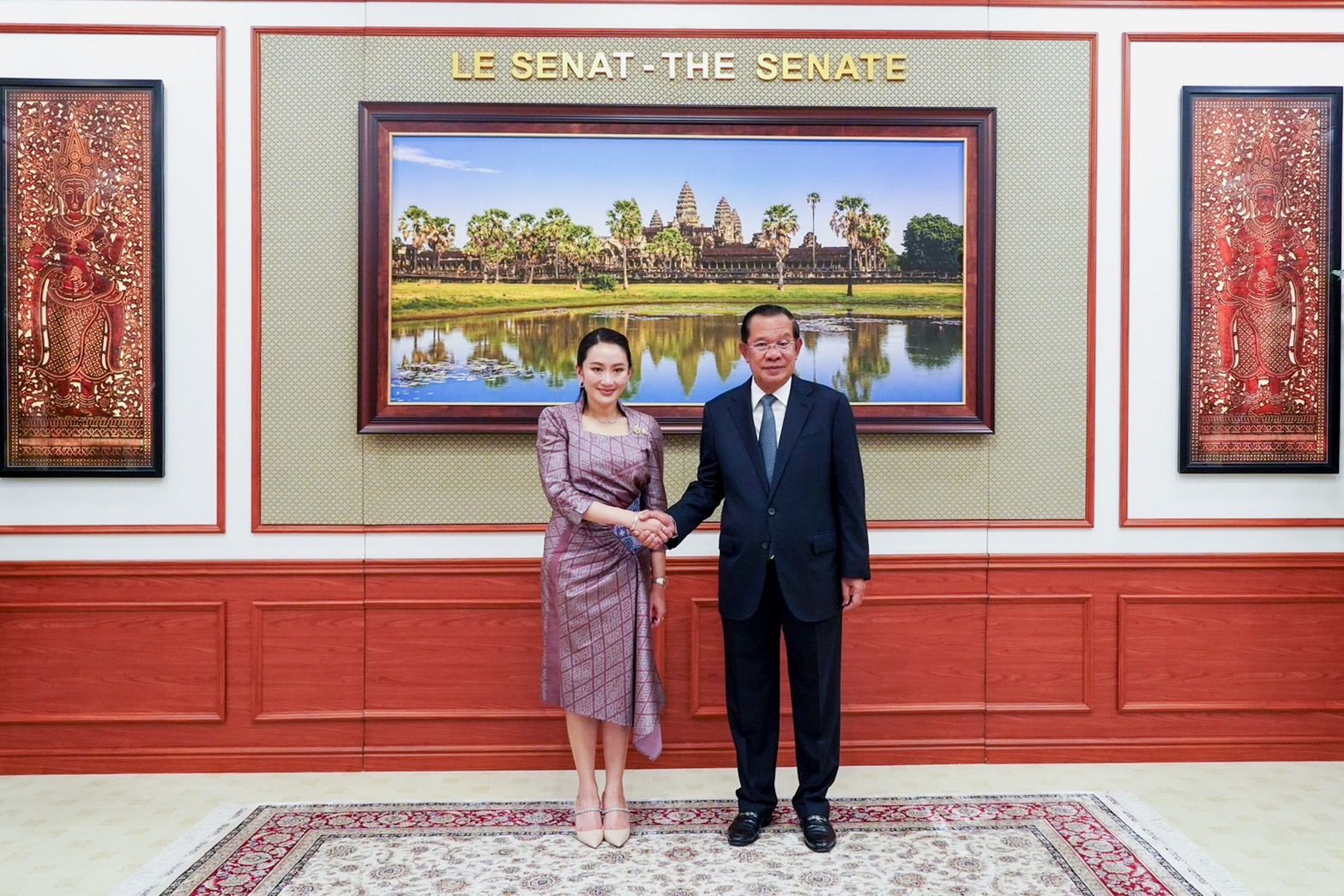
Paetongtarn’s Leaked Conversation Creates Chaos
In the audio, Paetongtarn, 38, refers to Hun Sen as “uncle”—common in Thai speech, but critics see it as too submissive to a rival. She criticizes Lieutenant General Boonsin Padklang, the Thai army commander at the border, calling him an “opponent” who only wants attention and makes pointless comments. Paetongtarn asks Hun Sen to ignore the military’s show of force, stressing her wish for peace.
Both leaders confirmed the recording is genuine. Reports say Hun Sen shared the audio with over 80 Cambodian officials before it appeared online. Thailand’s Foreign Ministry called this move a “breach of diplomatic etiquette.”
Many believe Hun Sen leaked the call to strengthen his image at home as he faces accusations that his friendship with the Shinawatra family has made him too soft on border disputes, such as those involving Koh Kood.
On 19 June, Paetongtarn made a public apology at Government House, joined by army and police chiefs. She said, “I would like to apologize for the leaked audio of my conversation with a Cambodian leader, which has caused public resentment,” explaining that her comments were a way to reduce tensions. She promised to stop private talks with Hun Sen, citing a lack of trust.
The next day, Paetongtarn travelled to Ubon Ratchathani to meet Lt. Gen. Boonsin and offered a direct apology. Both leaders insisted the matter was settled. Paetongtarn said, “There’s no longer any issue,” and Boonsin replied, “Everything is normal.”
Still, the incident caused real damage. The Bhumjaithai Party, a key coalition partner, withdrew from the government, leaving Paetongtarn’s Pheu Thai-led coalition with only a slim parliamentary advantage.
Political Repercussions for the Shinawatra Family
This crisis has deepened Thailand’s political rifts, putting Paetongtarn’s Pheu Thai Party against conservative and nationalist groups. Opponents, including members of the anti-Shinawatra “Yellow Shirt” movement, accuse her of disrespecting the military and being too friendly with Cambodia.
Protests broke out in Bangkok and Chiang Mai, with demonstrators calling for her resignation and new elections. The opposition Move Forward Party has used the controversy to demand more transparency and changes in government.
Paetongtarn’s family history makes things harder for her. Both her father, Thaksin, and her aunt, Yingluck, were removed from office by army coups in 2006 and 2014. The Shinawatra family’s long-standing relationship with Hun Sen has led to claims that personal ties are being put ahead of Thailand’s national interest.
Some analysts warn that Paetongtarn’s leadership, which began in August 2024, could soon end. Dr Thitinan Pongsudhirak from Chulalongkorn University said, “Thailand is now at risk of escalating the border dispute because of Paetongtarn’s mistake.”
Hun Sen’s involvement in the crisis has strengthened his image as a political tactician. Even after stepping down as Cambodia’s prime minister in 2023, he remains influential as Senate President and leader of the Cambodian People’s Party.
By leaking the phone call, Hun Sen has shifted criticism away from himself and boosted nationalist feelings in Cambodia. Thitinan commented, “Hun Sen is answerable to Cambodian public pressure. He needed to confront the Thai army, and in doing so, he’s made use of Paetongtarn.”
For years, Hun Sen’s government has faced corruption allegations, and Cambodia ranks 158 out of 180 on Transparency International’s 2024 Corruption Perceptions Index. His family controls major businesses, including telecoms and real estate. Critics say he uses state funds to reward his supporters.
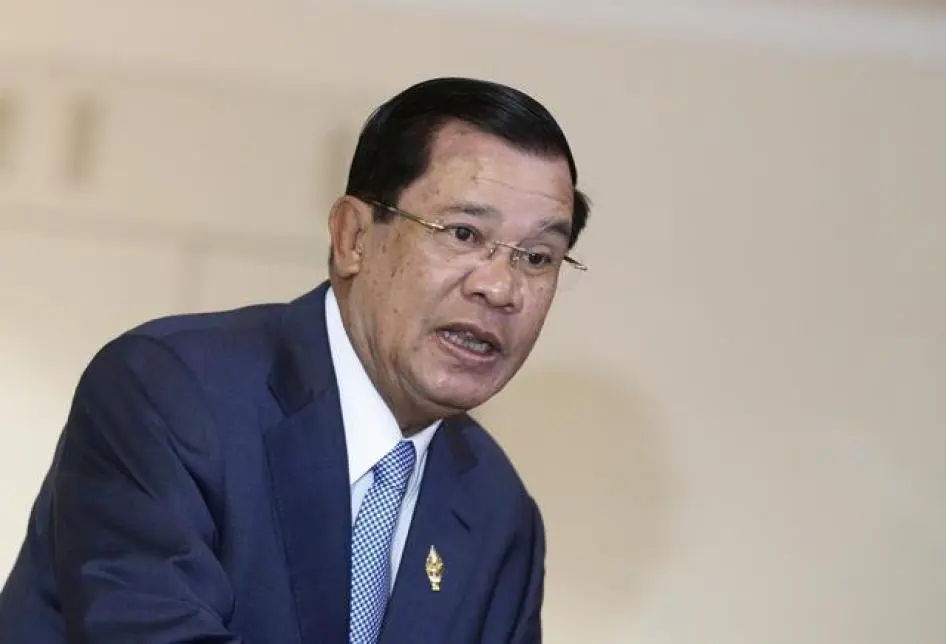
Hun Sen’s Strategy and Reputation
Hun Sen’s close relationship with China complicates matters. Cambodia has become a central partner in China’s Belt and Road Initiative, receiving large investments for infrastructure.
Chinese military activity, particularly at the Ream Naval Base, has raised worries among other ASEAN nations. Observers argue that Hun Sen’s reliance on Beijing shapes his foreign policy, including his tough stance in the border dispute, as a way to keep China’s support. This has increased Thai nationalists’ suspicion of Cambodia’s growing confidence under China’s wing.
The leak has damaged the personal friendship between the Shinawatra and Hun families, with Hun Sen himself saying on 20 June that their 30-year bond has been “shattered.” His actions suggest he values political gains over loyalty. For Paetongtarn, this crisis challenges her leadership and Thailand’s democracy, which has a long history of military coups.
With protests growing and coalition talks stumbling, Paetongtarn faces tough choices: step down, dissolve parliament, or try to ride out the crisis. Analyst Olarn Thinbangtieo from Burapha University suggests she may have to resign, as conservative groups look for a replacement from parties like Bhumjaithai. The ongoing dispute also threatens to escalate, risking deeper economic losses from disrupted trade.
The current conflict, driven by historic grievances and broken alliances, highlights how fragile regional relations can be. Hun Sen’s actions show a leader who puts power before trust, while Paetongtarn’s error has left her government unstable. As unrest builds in Bangkok, many in the region are watching closely, aware that events here could influence Southeast Asia’s political future.




